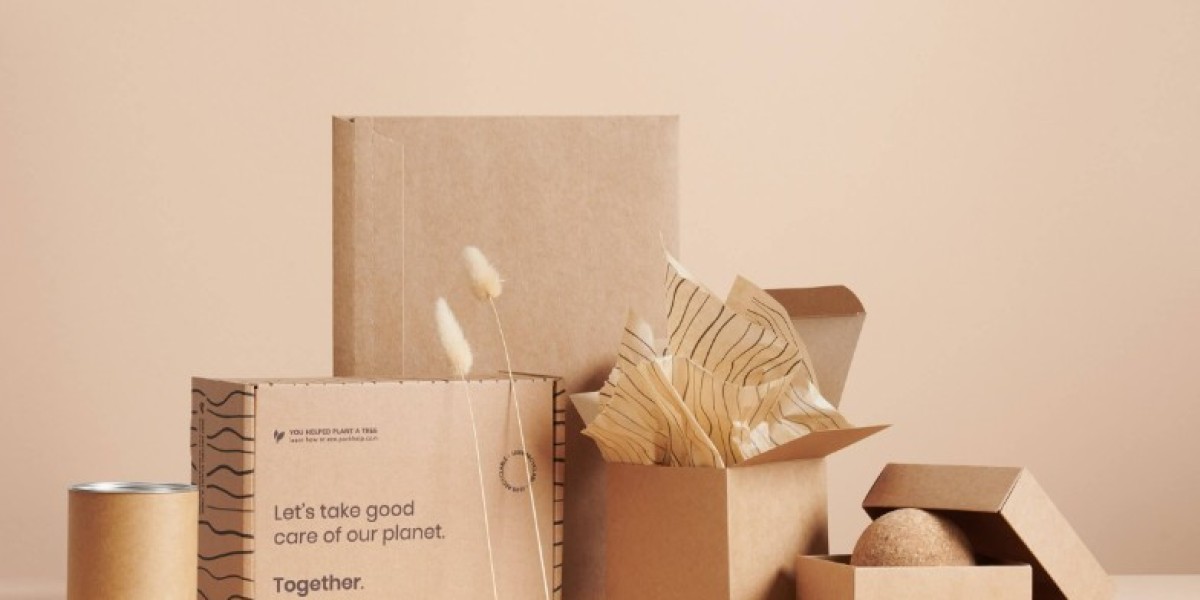Whether you're relocating across town or across country, moving can be stressful and produce a lot of waste. However, by choosing eco-friendly packing supplies, you can lighten your environmental impact and feel good about your move. In 2024, there are more sustainable options than ever before for everything from boxes and cushioning to tape and labels. Here are some of the best eco-friendly packing supplies to help you move in a green way.

Reusable Moving Boxes
One of the biggest sources of waste from moving is cardboard boxes. Once empty, most people toss the boxes rather than reusing or recycling them. Opting for reusable plastic containers, wooden crates, or plastic totes is a more sustainable choice. These containers can be reused for multiple moves, saving resources with each use.
Look for options made from durable plastic like polypropylene or from renewable wood sources. Collapsible plastic containers stack neatly when empty for easy storage. Add dividers inside the containers to organize smaller items. Label the containers clearly so they are easy to identify on moving day and at your new home.
Biodegradable Packing Paper
You'll still need cushioning and wrapping materials to protect delicate items. Paper is preferable to plastic bubble wrap, but standard kraft paper isn't recyclable or compostable. A greener choice is unbleached paper made without dyes, inks, or glues. Look for paper certified compostable by programs like Compost Manufacturing Alliance (CMA).
Some brands to consider include EcoEnclose compostable packing paper, Green Paper packing sheets and wrap, and BioPak compostable paper rolls. These papers will break down naturally without contaminating compost. Tear or cut only what you need to reduce waste.
Plant-Based Packing Peanuts
Packing peanuts made from plant starches like corn are a crunchy alternative to the plastic variety. They biodegrade in just a couple months without polluting landfills. Some brands use potato or other vegetable starches. Look for certifications like Compostable in Commercial Facilities to ensure proper breakdown.
While plant-based peanuts cost slightly more than plastic, the environmental benefits outweigh the cost. Reusable packing pillows and bubble wrap provided by moving companies are also eco-friendly choices for cushioning. Lay peanuts loosely inside boxes rather than sealing them in bags.
Natural Fiber Ropes and Straps
Strong ropes and straps are essential for securing boxes during transport, but nylon and plastic varieties are not truly renewable or recyclable. Choose straps made from recycled PET plastic, low-impact polypropylene, or natural fibers like sisal or jute instead.
Jute is a fast-growing grass that is sustainably harvested without pesticides or chemical inputs. It's biodegradable yet very durable. Look for straps and cargo belts certified compostable by programs like BPI. Sisal is another strong natural fiber excellent for moving straps that comes from the leaves of the agave plant. Roll straps tightly when not in use to save space.
Non-Toxic Adhesives
While regular masking and packing tapes are plastic-based, there are eco-friendly adhesive options. Paper tapes made from unbleached kraft or washi paper have a natural adhesive on the back that's either starch- or water-based.They will degrade without issue.
For heavier duty tasks, try plant-based packaging tapes and box sealing tapes made from bioplastics or plant resins. Some brands incorporate recycled materials in the backing also. Look for tapes certified home and commercially compostable. Use just what you need to prevent waste.
Recycled Labels
Rather than using fresh printer paper for labels, pick up a pack of address labels or sheets made from post-consumer recycled paper. Reusable name tags crafted from cork or bamboo let you change out information as needed through multiple moves.
Download free printable labels you can print on scrap paper, or get waterproof labels printed on recycled TYVEK for outdoor moving supplies. Use a permanent marker rather than tape for handwritten labels when possible. Leftover labels store neatly for future use.
Alternative Sources of Moving Supplies
If you prefer to reduce waste further, consider renting moving supplies rather than purchasing new materials. Many moving companies rent reusable moving boxes, furniture blankets, dollies, and other large equipment. Deposit fees are fully refunded upon return.
Local Habitat for Humanity ReStores often carry discounted recycled moving boxes, furniture pads, and organizing supplies. Buying gently used items extends their lifespan. Neighborhood buy nothing groups are another source for free reusable supplies.
Reducing Plastic Wrap Usage
Plastic wrap and bags are low on the recycling hierarchy due to their complex materials and energy intensity to break down. For a greener move, use sparingly and only when necessary. Reusable fabric wraps, storage totes, and bins containing items eliminate single-use plastics.
Secure items tightly inside boxes using recycled tapes and ropes rather than completely wrapping in plastic sheeting. Adhesive vinyl letters serve as effective waterproof labels for outdoor storage containers. With some planning, it's easy to leave plastic packaging materials behind.
Going green for your move feels good and helps ensure supplies have multiple uses rather than ending up in a landfill. Choosing reusable, recycled, and plant-based packing materials reduces environmental impact substantially compared to disposable plastic varieties. With the right sustainable packing supplies, you'll be equipped to move house in an eco-friendly manner.


